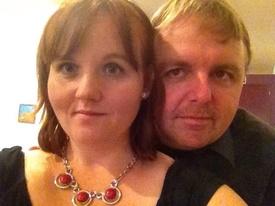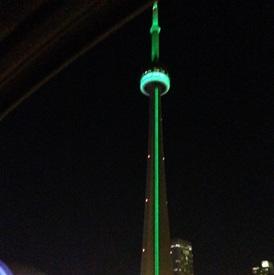Wheat belly? Is wheat bad for losing weight?
CharonCharon
Posts: 264 Member
I love things like barley, wheat bran cereal, brown rice, bulgur wheat, etc.
I saw a show on PBS saying that wheat was bad for my weight loss?
What? Really?
Why?
How can something that makes me feel so nice and full and makes me happy in the bathroom be making fouling up my weight loss?
I saw a show on PBS saying that wheat was bad for my weight loss?
What? Really?
Why?
How can something that makes me feel so nice and full and makes me happy in the bathroom be making fouling up my weight loss?
0
Replies
-
It's only bad for you if you're gluten intolerant, which isn't the case of most people.0
-
Only folks with specific issues related to gluten have to stay away from barley and wheat.CharonCharon wrote: »I love things like barley, wheat bran cereal, brown rice, bulgur wheat, etc.
I saw a show on PBS saying that wheat was bad for my weight loss?
What? Really?
Why?
How can something that makes me feel so nice and full and makes me happy in the bathroom be making fouling up my weight loss?0 -
No this is not true. I eat 2 slices of wheat bread every morning for breakfast & eat things like whole wheat cereal, pancake mix & pita bread all the time & I am 106lbs, 5'1 & have maintained that weight for 3+ years. As long as u are sticking to your daily calorie goal. & my stomach is as flat as it gets0
-
Wheat belly is a good book and mentions the changes wheat has gone thru since ancient times. Still in our modern lives we are stuck eating the mass produced wheat. It is another diet that tells you wheat might not be that good for you. Yes I read the book. http://www.webmd.com/diet/wheat-belly-diet-review0
-
This content has been removed.
-
My mum and sister call their bellies a "wheat belly". My mum particularly eats a lot of it. She goes through a loaf of bread in 2 days, and has 6 or more weetbix every morning for breakfast. She is a skinny little rake, but has that pot belly.0
-
Wheat belly is a good book and mentions the changes wheat has gone thru since ancient times. Still in our modern lives we are stuck eating the mass produced wheat. It is another diet that tells you wheat might not be that good for you. Yes I read the book. http://www.webmd.com/diet/wheat-belly-diet-review
You call it a good book without explaining why except to link to an article that is appropriately negative. There's not a lot of there there.0 -
UltimateRBF wrote: »CharonCharon wrote: »I love things like barley, wheat bran cereal, brown rice, bulgur wheat, etc.
I saw a show on PBS saying that wheat was bad for my weight loss?
What? Really?
Why?
How can something that makes me feel so nice and full and makes me happy in the bathroom be making fouling up my weight loss?
It's not. Unless you have celiac disease or an allergy to wheat, it's not bad.
I'd also add that some people have allergies to ingredients (or allergies to certain pesticides used on ingredients) found in products like wheat breads, but not the actual wheat or gluten, and will often mistake that for a wheat or gluten allergy. Which is another reason why sometimes wheat gets a bad rap.0 -
Wheat is only bad for your weight loss, if you eat too much of it (just like anything else, as there are not bad foods). As long as you're in a deficit, you can eat whatever you want.0
-
I lost all my weight while eating wheat and gluten products every single day. Again, as long as your calories in are lower than your calories out, you will lose weight. It does not matter what foods you eat if weight loss is your only goal.0
-
It's not bad for my weight loss. I have some whole wheat bread nearly every single day.
If someone has a medical issue or just doesn't feel well when they eat it, they should avoid it. If not, eat it! 0
0 -
UltimateRBF wrote: »CharonCharon wrote: »I love things like barley, wheat bran cereal, brown rice, bulgur wheat, etc.
I saw a show on PBS saying that wheat was bad for my weight loss?
What? Really?
Why?
How can something that makes me feel so nice and full and makes me happy in the bathroom be making fouling up my weight loss?
It's not. Unless you have celiac disease or an allergy to wheat, it's not bad.
I second this. I have coeliacs. Why cut out a food group if you do not have to? Taking gluten out of your diet is a lot harder then you think.
0 -
I cut back on wheat products and thought myself "low carb" only to realize I was still eating 50% carbs.
Most are from rice, veggies and fruits, but I still eat wheat produced foods.
In my fat times, I just went carb crazy, but with moderation, I had no real issues.
There is a book "Wheat Belly" where the author advocates complete abstinence from all wheat products.
I took in all he had to say, then measured it with my results moderating wheat carbs.
At day's end, I believe too much wheat based carbs are unhealthy...just like too much of anything is unhealthy.
Experiment yourself and judge for yourself.
Best of luck! 0
0 -
Appreciate some of the comments on this board. I just started reading the book "wheat belly" based off of a recommendation from a friend I know that lost 100 lbs. i like what Pinnacle had to say about moderation, that is the approach that has worked for me in the past as well.0
-
It comes down to calories. For weight loss , all you need is calorie deficit. Cico.
Unless you have a medical reason , there's no need to cut out wheat. I eat @190 carbs per day and had no problem losing all my weight. It comes down to calories.0 -
I found it difficult to lose weight when all I did was eat food that had wheat in it...I would always bloat afterwards, I looked like I was 6 months pregnant.0
-
babylambss wrote: »I found it difficult to lose weight when all I did was eat food that had wheat in it...I would always bloat afterwards, I looked like I was 6 months pregnant.
Unfortunately, that sounds suspiciously like IBS or what the FODMAPS diet was developed to treat. Often people who have these symptoms (bloating after eating wheat/gluten/etc.) cut out "gluten" (and wheat) and it helps because they are reducing one of the triggers. But, there's a lot more to it than the gluten-free diet required by celiacs disease:
http://www.med.monash.edu/cecs/gastro/fodmap/
These are really more of a medical consideration than a "nutrition and fitness" issue meaning, people should talk to their doctors about them (who may test for celiacs disease, IBS, etc.) since they are not really meant to be weight loss diets.
0 -
Pinnacle_IAO wrote: »I cut back on wheat products and thought myself "low carb" only to realize I was still eating 50% carbs.
Most are from rice, veggies and fruits, but I still eat wheat produced foods.
In my fat times, I just went carb crazy, but with moderation, I had no real issues.
Carb crazy sounds like my experience leading up to my heaviest weight.
In those days I might eat a healthy balanced dinner but for the rest of the day I finally realized I was reaching for carbs, carbs, carbs (easy and quick) and most of those carbs were wheat or grain based carbs, and of items I was clearly over indulging on, those were almost always grain carbs. It would not surprise me if I was getting 75% or more of my calories from carbs, largely from low nutritional value wheat or other grain carbs. Breakfast, lunch, and snacks were largely carb rich.
Today I take time to make better breakfast and lunches no matter how busy my day is, and I don't reach for grain rich carbs for snacks. Rather arbitrarily I picked a 35% goal for my carb macro but don't worry at all if I go over - the target is there primarily to keep me mindful. It's not just total % of carbs but sources that matter. If I'm over, even way over, and the dominant source is from fruits and veges in my day, I don't feel the need to worry about it.
Some love to say that calories are all that matter - "go ahead and eat a loaf of bread if you've got 'room' in your calorie budget" - but that's a facile response which doesn't take into account myriad other health factors and individual tolerance and responses.
Non-celiac gluten intolerance is an observed reality in a larger percentage of the population than is known to suffer from celiac disease, but the physiological nature of the intolerance isn't the same and isn't well understood.
Inflammatory effects of grain rich diets, particularly diets high in highly processed grain, is a well documented phenomenon. Grain based foods with higher glycemic index are known to affect insulin sensitivity and that can have an impact on one's weight.
The reality is different people react, surprise, differently to what's in their food stream.
0 -
I think some people tend to overeat wheat products (myself included) but that is another issue all together. I just returned to eating wheat products within a caloric deficit. I am losing. If I could cut out all wheat products, I totally would. But it is neither realistic for me, nor any fun!
So if it is something you over eat, then cutting it out will help create a deficit. However, I have found that restricting how much, rather than what, I eat is a much more mentally healthy game.0 -
I went wheat free for awhile (because of Symptoms A, B and C) but started putting it back into my diet. I realized I still had Symptoms A, B and C while being gluten free, but to a much less scale. After slowly starting to introduce it back into my diet, the symptoms came with a vengeance. I tried, but I'm going to cut it out again. The symptoms were manageable when I was wheat free, and I think with a little exercise added in there they will be totally fine. I can't even think about exercising right now because I'm so lethargic/tired/exhausted.0
This discussion has been closed.
Categories
- All Categories
- 1.4M Health, Wellness and Goals
- 398.1K Introduce Yourself
- 44.7K Getting Started
- 261K Health and Weight Loss
- 176.4K Food and Nutrition
- 47.7K Recipes
- 233K Fitness and Exercise
- 462 Sleep, Mindfulness and Overall Wellness
- 6.5K Goal: Maintaining Weight
- 8.7K Goal: Gaining Weight and Body Building
- 153.5K Motivation and Support
- 8.4K Challenges
- 1.4K Debate Club
- 96.5K Chit-Chat
- 2.6K Fun and Games
- 4.8K MyFitnessPal Information
- 12 News and Announcements
- 21 MyFitnessPal Academy
- 1.5K Feature Suggestions and Ideas
- 3.2K MyFitnessPal Tech Support Questions



















